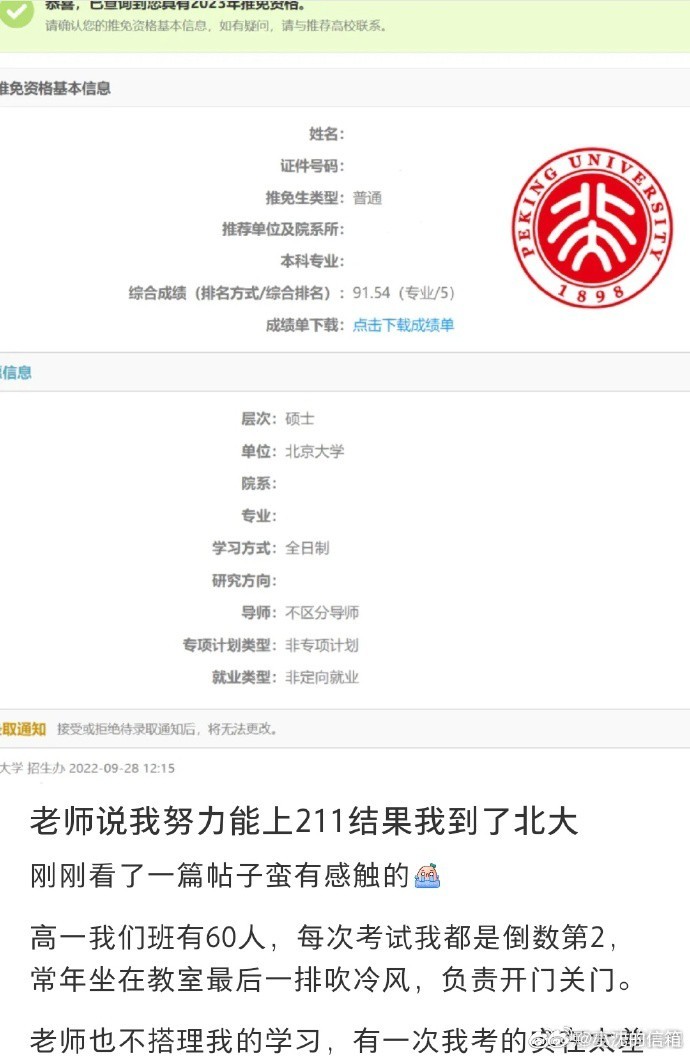国寇松勋爵曾说:“中国好比是一所大学,学者在这里永远拿不到学位。”在外国人眼中,中国就是迷一般存在的神奇。由于传统西方媒体对中国的报道普遍比较消极,因此,在很多外国人在来中国之前,都普遍存在一种固有的负面印象。
随着中国改革开放的成功,中国日益成为举世瞩目的焦点,国际上掀起了一阵阵“中国热”。如今越来越多的外国人通过留学、旅游、商务等形式访问中国,通过在中国的生活与工作,亲身体验并了解了中国。那些真正善于观察中国的外国人,正在从日常生活的点点滴滴体会自己对中国的认识。
伴随着这些老外对中国的认识的逐步加深,问题来了,有哪些关于中国的看法改变了呢?
I have been in China for the last three years and this is my last year here, my experience of living in China Changed me a lot, here are some off the top of my head:
我在中国已经三年了,这是我在这里的最后一年,我在中国的生活经历改变了我很多,以下是我的一些想法:
The Importance of leadership
领导力的重要性
During my time in China, I had the Chance to be a first Class witness of how the Chinese Leaders(Governors) cared about their people.
在中国期间,我有机会成为中国市级领导人(州长)如何关心人民的一等见证人。
I have been At Universities and in the Enterprise world and in both the leaders treated their collaborators as their brothers, they cared genuinely about them and did their best to make them happy. I realized how important is leadership.
我曾在大学和企业界工作过,两位领导都把合作者当作兄弟对待,他们真诚地关心他们,并尽最大努力让他们快乐。我意识到领导力有多么重要。
Eating on time/按时吃饭
Chinese are very strict when it comes to eating, at the beginning I found it annoying when my friends asked me (吃饭了没), they would always ask me if I had breakfast, and at lunchtime and dinnertime we would go and have our meals together religiously every day at the same time(11 am and 6 pm).
中国人在吃饭方面非常严格,一开始我觉得朋友问我很烦人(吃饭了没), 他们总是问我是否吃过早餐,在午餐时间和晚餐时间,我们每天都会在同一时间(上午11点和下午6点)虔诚地一起吃饭。
Before I came to China I was someone who would eat Randomly when I was hungry, and Chinese people taught me how to feed myself in a healthier way.
在我来到中国之前,我是一个饿了就随便吃的人,中国人教我如何以更健康的方式养活自己。
Do more talk less/多做事少说话
Where I come from people tend to talk lots of shit but do nothing lol,I was also like that;After having some interactions with my Chinese friends I noticed that they tend to be very discrete about their projects, they would let no one know what they were working on and focused instead on bringing results(pragmatic). Let your results speak for you.
在我的家乡,人们往往会说很多废话,但什么都不做,哈哈,我也是这样;在与我的中国朋友进行了一些互动后,我注意到他们对自己的项目往往非常分散,他们不会让任何人知道他们在做什么,而是专注于带来结果(务实)。让你的结果为你说话。
No one can help you but you/没有人能帮你,只能靠你自己
I learned from Chinese people the sense of standing for myself, never complain, no one can influence your success but you, no one owes you something.
我从中国人那里学到了为自己挺身而出的意识,从不抱怨,没有人能影响你的成功,只有你,没有人欠你什么。
Start from scratch and climb your way up(Fake it until you make it)
从零开始,一路攀升
I am in the Software engineering industry and I learned from Chinese that the quickest way to build something is to start from scratch, copy what others are doing(do not reinvent the wheel) and finally personalize the product.
我从事软件工程行业,我从中国人那里学到,构建东西的最快方法是从头开始,复制别人正在做的事情,最后个性化产品。
People around the world tend to associate Chinese with only copying stuff but not innovating if it was that easy everyone would have done it(intellectual property is important though)
世界各地的人们倾向于将中国人与只拷贝东西联系在一起,而不是与创新联系在一起——创新没那么容易(尽管知识产权很重要)
Family above everything/家庭高于一切
Where I come from, Chinese are portrayed to be selfish, materialistic, without any sensitivity,so I used to believe that elders in China have any care from their Children and that they were left by themselves because their own Children were busy working,It was an eye opening experience to realize that most of my Chinese Friends lived with their parents and took care of them, and walking around I would see a typical Chinese family with one kid on a stroller pushed by his grandpa and followed by the grandma and the parents;The family sense of Chinese is very strong.
在我的家乡,中国人被描绘成自私、物质主义、没有任何敏感性的人,所以我曾经相信中国的长辈们会照顾他们的孩子,他们是因为自己的孩子忙于工作而被自己抛弃的。意识到我的大多数中国朋友都和他们的父母住在一起并照顾他们,这让我大开眼界,四处走动,我会看到一个典型的中国家庭,一个孩子坐在婴儿车上,由爷爷推着,奶奶和父母跟着;中国人的家庭意识很强。
中华文化博大进深 haha
A few years back I had to change my careers. At that time I took a big change and moved halfway across the world to China.
几年前,我不得不转行。那时候,我做了一个很大的改变,搬到了半个地球之外的中国。
I lived there for 3 1/2 years. I was there for 3 years in NE China in a small rural area. Then about 4 years later I move back but to the big city of Shanghai(but only for about 1/2 a year).
我在那里住了三年半。我在中国东北的一个小农村呆了3年。大约4年后,我搬回了大城市上海(但每年只搬一年半)。
That’s the background story now to your question.
这就是问题的故事背景。
My first 3 years in China was very humbling. I was in a rural area still governed by old rules and ideas. I met a friend who lived in South China in a big city and she told me that I experience things that she never experienced while there. Each person's experiences are so different. In the rural areas you live like the Chinese, but in a big city, you live like a foreigner in China.
我在中国的头三年非常卑微。我生活在一个仍然受旧规则和旧观念统治的农村地区。我遇到了一个住在华南大城市的朋友,她告诉我,我在那里经历了她从未经历过的事情。每个人的经历都是如此不同。在农村,你生活得像中国人,但在大城市,你在中国生活得像外国人。
When I say humbling it’s because I learned to live on very little. I spent $200 a month for food, shopping and traveling. When I went back to China in a big city you definitely can’t live on that. I learned to appreciate what I had and how to make do with what I had.
当我说卑微时,是因为我学会了靠很少的东西生活。我每月花200美元买食物、购物和旅行。当我回到中国的一个大城市时,你肯定不能靠这个生活。我学会了欣赏我所拥有的,学会了如何将就。
I discovered that my own culture lack respect for elders. That we are far behind when it comes to public transport. (China is far ahead of us). I gained a love for food, Chinese eat all the time (but are skinny). They eat tons of vegetables and meat as well…but it’s fresh produce…which my own country lacks…we eat way too much processed food. Of course, I learned how to use a squatty potty.
我发现我自己的文化缺乏对长辈的尊重。在公共交通方面,我们远远落后了。(中国遥遥领先)。我获得了对食物的热爱,中国人一直在吃(但都很瘦)。他们也吃大量的蔬菜和肉…但这是新鲜的农产品…而我自己的国家缺乏…我们吃太多的加工食品。当然,我学会了如何使用蹲便盆。
Now, when I went back to China 4 years later…so much has changed. They are so advanced when it comes to technology. While China was a humbling place for me for my first 3 years.
现在,当我4年后回到中国时……发生了很多变化。他们在技术方面非常先进。在我的头三年里,中国对我来说是一个令人感到谦卑的地方。
China will always be a part of me. It has changed me so much more than I can ever put into words. But for me, “humble” is what learned from all my experiences in China.
中国将永远是我的一部分。它改变了我,我无法用语言表达。但对我来说,“谦虚”是从我在中国的所有经历中学到的。
I believe the most important change that happens is mentally - you really start enjoying your life much more. I rarely see someone complain, about anything.
我相信发生的最重要的变化是精神上的——你真的开始更加享受你的生活了。我很少看到有人抱怨任何事情。
Look at your timeline on Facebook, all those people arguing about politics, global warming, gay marriage or whatever - people here don’t discuss those topics. They, or should I say ‘We’ don’t care.
看看你在脸书上的时间线,所有那些争论政治、全球变暖、同性婚姻或其他什么的人——这里的人不会讨论这些话题。他们,或者我应该说“我们”不在乎。
It’s so nice just to sit with a bunch of people and not get into deep discussions. Drink, eat, enjoy and work the next morning. There are no ‘weekends’ here as we know them in the West. People work constantly, but they also have fun constantly. It is not as monotone as in the West.
和一群人坐在一起,不深入讨论,真是太好了。第二天早上喝酒、吃饭、享受和工作。这里没有我们在西方所知道的“周末”。人们不断地工作,但他们也不断地享受乐趣。它不像西方那样单调乏味。
I don’t remember the last time I had dinner just by myself. Usually there are always some (Chinese) friends, somewhere, and we eat together. When the bill is due, everyone wants to pay it - not the other way around like in the West. Money is not the number one priority here - it’s building up a network (guanxi) of friends and acquaintances, so you can help each other out in various situations.
我不记得上次我一个人吃饭是什么时候了。通常总有一些(中国)朋友,在某个地方,我们一起吃饭。当账单到期时,每个人都想付钱,而不是像西方那样反过来。金钱不是首要任务——它是建立一个由朋友和熟人组成的网络,这样你就可以在各种情况下互相帮助。
I am not a teacher - I run a small design and advertising firm. After spending 6 years here, I cannot imagine moving back to Europe again. The things I would miss the most are the people - even just strangers, but they’ll treat you as family.
我不是一名教师,我经营着一家小型设计和广告公司。在这里呆了6年后,我无法想象再次搬回欧洲。我最想念的是那些人——即使只是陌生人,但他们会把你当成家人。
Many Westeners will never understand this, and that’s a good thing. In fact, we foreigners, who have ‘real jobs’ and really understand the Chinese lifestyle - we don’t want you here. Because the majority of foreigners just come here and they simply cannot adapt. Then they start complaining or even behaving publicly in a way that makes all foreigners look bad.
许多西方人永远不会理解这一点,这是一件好事。事实上,我们这些外国人,他们有“真正的工作”,真正了解中国人的生活方式——我们不希望你在这里。因为大多数外国人只是来到这里,他们根本无法适应。然后,他们开始抱怨,甚至公开行为,让所有外国人看起来都很糟糕。
I have become a great believer in the power of the Chinese to create and sustain successful businesses. And, paradoxically, it is Communist China that has made me realize how wonderful capitalism can be, when done more or less right. Before I came to China, I believed the ‘they can only copy stuff’ idea. Yes, some products are shoddy copies of a western original, but there are some truly great innovations in China. I don’t have to point all of them out, because there are plenty of lists out there.
我已经非常相信中国人创造和维持成功企业的力量。矛盾的是,正是社会主义中国让我意识到,如果做得或多或少正确的话,市场主义是多么美妙。在我来到中国之前,我相信“他们只能复制东西”的想法。是的,有些产品是西方原版的粗制滥造,但在中国也有一些真正伟大的创新。我不必全部指出,因为有很多例子。
I first came to China in 2006 and I loved the atmosphere, the ‘can do’ entrepreneurial spirit. I moved here permanently in 2009 and haven’t regretted it.
我第一次来到中国是在2006年,我喜欢这里的氛围,那种“敢做”的创业精神。我在2009年永久搬到这里,并没有后悔。
Most importantly, I find that doing business with my Chinese friends is great, once you’ve established a relationship, there is much less hassle than in the west and the dangers of getting cheated are much less once you have some Chinese protection in you network. There is no problem that cannot be solved with a good, old-fashioned bribe!
最重要的是,我发现和我的中国朋友做生意很好,一旦你建立了关系,就会比西方少很多麻烦,一旦你的网络中有了一些中国人的保护,被骗的危险也会小很多。没有什么问题是用一个好的、老式的贿赂无法解决的!
When I tell my European friends how people do business in China, they are aghast, but it works and it works much better than in Europe. European Socialism has created endless formalities and challenges for entrepreneurs. Chinese Socialism has created a truly boisterous market with ample opportunities.
当我告诉我的欧洲朋友人们如何在中国做生意时,他们都惊呆了,但这很有效,而且比在欧洲好得多。欧洲社会主义给企业家们带来了无尽的手续和挑战。中国社会主义创造了一个真正热闹的市场,有很多机会。
My experience in China is based on living and teaching as a visiting professor at universities in three Chinese cities: Chongqing in “southwest” China, Yinchuan in “northwest” China, and Guangzhou on the southeast coast. I have also visited a dozen or so other cities and some remote regions such as rural Ningxia, the mountains of Yunnan, Zhangjiajie, etc. [I use air quotes on southwest and northwest because, looking at a map, we would think of these cities as southern- or northern-middle. However, in Chinese culture, the true southwest (Tibet) or northwest (Xinjiang) are pretty much off the cognitive map.)
我在中国的经历是基于在中国三个城市的大学担任客座教授的生活和教学:中国西南部的重庆、中国西北部的银川和东南沿海的广州。我还访问了十几个其他城市和一些偏远地区,如宁夏农村、云南山区、张家界等。(我使用西南和西北的空中引号,因为在地图上,我们会认为这些城市是中南部或中北部。然而,在中国文化中,真正的西南(西藏)或西北(新疆)几乎不在认知地图上。)
As with others, living in China has certainly changed my thinking on things. I’ve definitely realized the importance of rule of law (and not just democracy).
和其他人一样,生活在中国无疑改变了我对事物的看法。我确实意识到了法治(而不仅仅是民主)的重要性。
But I have also changed personally. For one thing, I am more willing to perform in public and not worry about what people will say or think. The thing is, in China, I was the center of attention just for being foreign. (This was more true 30 years ago when I first lived in China than it is now.) Since people were already pointing and staring at me, I might as well get up and sing off-key or do whatever it is I was going to do. Some of it is just silly things, but in China, men ride women’s bikes all the time. No one cares. It’s a bike. If they are pointing at me it’s because I am a foreign guy, not because I am riding a ridiculous little pink girl’s bike.
但我个人也发生了变化。首先,我更愿意在公共场合表演,不担心人们会说什么或想什么。问题是,在中国,我只是因为身为外国人而成为人们关注的焦点。(30年前,当我第一次住在中国时,情况比现在更为真实。)既然人们已经指着我,盯着我看了,我还不如站起来唱歌,或者做我想做的任何事情。有些事情只是愚蠢的,但在中国,男人总是骑女人的自行车。没人在乎。这是一辆自行车。如果他们指着我,那是因为我是一个外国人,而不是因为我骑着一个可笑的粉红色小女孩的自行车。
Also, I’ve always been a person who was very concerned to follow the rules, not get in the way of others and so on. Now I still am, but a little less so. In China, people worry less about this. People do what they want to do unless someone makes you stop. People ignore no smoking signs, park on sidewalks, block the aisle in the store. There’s more enforcement of the rules in big cities now than there used to be, so people obey the rules more, but generally, people are just freer to do what they want. Now, I still generally obey the rules and want to cause trouble, but I am more likely to push the boundaries more than I used to. There are rules, but who made them anyway? And if something doesn’t actually bother anyone, then what’s the harm?
此外,我一直是一个非常关心遵守规则,不妨碍他人的人等等。现在我仍然是,但有点不那么担心了。在中国,人们对此不那么担心。人们做他们想做的事,除非有人让你停下来。人们无视禁烟标志,把车停在人行道上,堵住商店的过道。现在大城市的规则比过去执行得更多,所以人们更遵守规则,但一般来说,人们只是更自由地做他们想做的事。现在,我仍然普遍遵守规则,想制造麻烦,但我比过去更有可能突破界限。规则是有的,但到底是谁制定的?如果某件事并没有真正困扰到任何人,那又有什么害处呢?
So living in China has definitely made me more relaxed about how I behave in public.
因此,在中国生活无疑让我对自己在公共场合的行为更加放松。
后记:
盘点这些外国人来中国前后的想法改变,不难发现外国人对中国文化的认识过程,以及对中国人的善良、团结、勤劳的钦佩。而且中国的变化实在太快了,相信过一段时间再来整理外国人对中国的看法,可能会有更多有趣的发现。
尽管,西方政治人物以及西方媒体仍然再不遗余力的丑化中国,但是互联网是开放的,中国也是开放的,只要不带有色眼镜,即使没有亲身来过中国,也能在网络上看到真实的中国。涛涛历史洪流是谁也挡不住的。








